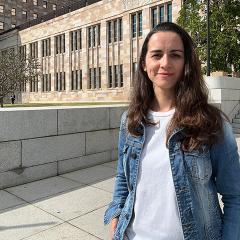Taking care of our wellbeing is essential to enjoy our university experience, but it doesn’t have to be a boring task. Building positive social connections is a fun and effective way to look after our health.
Recent studies have shown how social connectedness can benefit our mental and physical health. In this article, I will share the kinds of social connections that are good for our wellbeing and give you some tips for finding interesting groups at university.
Why do we need meaningful social connections?
Having many friends doesn’t necessarily mean having meaningful social connections. Sometimes, we may feel like something is missing even when we are surrounded by people. What we really need is more than random interactions. As human beings, we need positive relationships that are stable, enjoyable, and supportive. Without them, we may feel lonely and lack a sense of belonging.
Loneliness can harm our physical and psychological health. It can affect our lifespan more than lack of physical activity. On the other hand, strong identification with social groups can improve our mental health outcomes. One of the reasons for that is that we cope better with stress when we have the support of our peers.
And there is more! A study with university students in England found that those with high identification with other university friends were associated with lower levels of depression, anxiety and paranoia.
University life can be challenging and stressful at times. Let’s remember that we can connect and support each other in this journey. Who knows, we might even make friends for life! You may be surprised by the variety of social opportunities that student life offers. Here are some ideas to get you started:
Wanna Toki?
This is a chance to join a new community of students who are open to socialising. The app in development “toki” has a Facebook group with more than a thousand students looking for new friends who share their interests. Dr Kana Imuta from the School of Psychology is behind the development of Toki.
Isn’t it a beautiful concept? The Facebook group allows people to connect based on their interests. It can be anything like having a coffee between tutorials or going for a hike on the weekend.
Volunteering with UQ
Have you ever thought about taking part in UQ social events, joining a student representative body, or mentoring other students? Volunteering within the UQ community is also an excellent way to make new friends, be part of activities that matter to you, and develop your employability skills. There are many options to choose from, with engagements for one single event or others that involve ongoing participation. If this sounds interesting to you, check the Get Involved website to explore current opportunities.
Social Events, Clubs & Societies
Keep an eye on the UQ Union website to learn about social events or browse a club or society that suits your interest. There are more than two hundred clubs in their directory! Another fun opportunity is to join your school’s student association. Check with your school about how to get in touch with them.
Look around you
Sometimes, we may overlook the simplest way to get connected: just look around you. Be open-minded and don’t be afraid to say hello and introduce yourself to your classmates. It can be the start of a great conversation and maybe a friendship! You can also use online platforms like Blackboard or Zoom chat to reach out to your peers and form study groups or just chat about common interests.
I hope this article has inspired you to make some new connections at university and boost your wellbeing! Remember, you are not alone in this journey and there are many people who are eager to meet you!

